Ashura 2016: Self-flagellation begins as Islamic world marks religious festival
Ashura is marked by all Muslims, but plays a major role in the Shia calendar
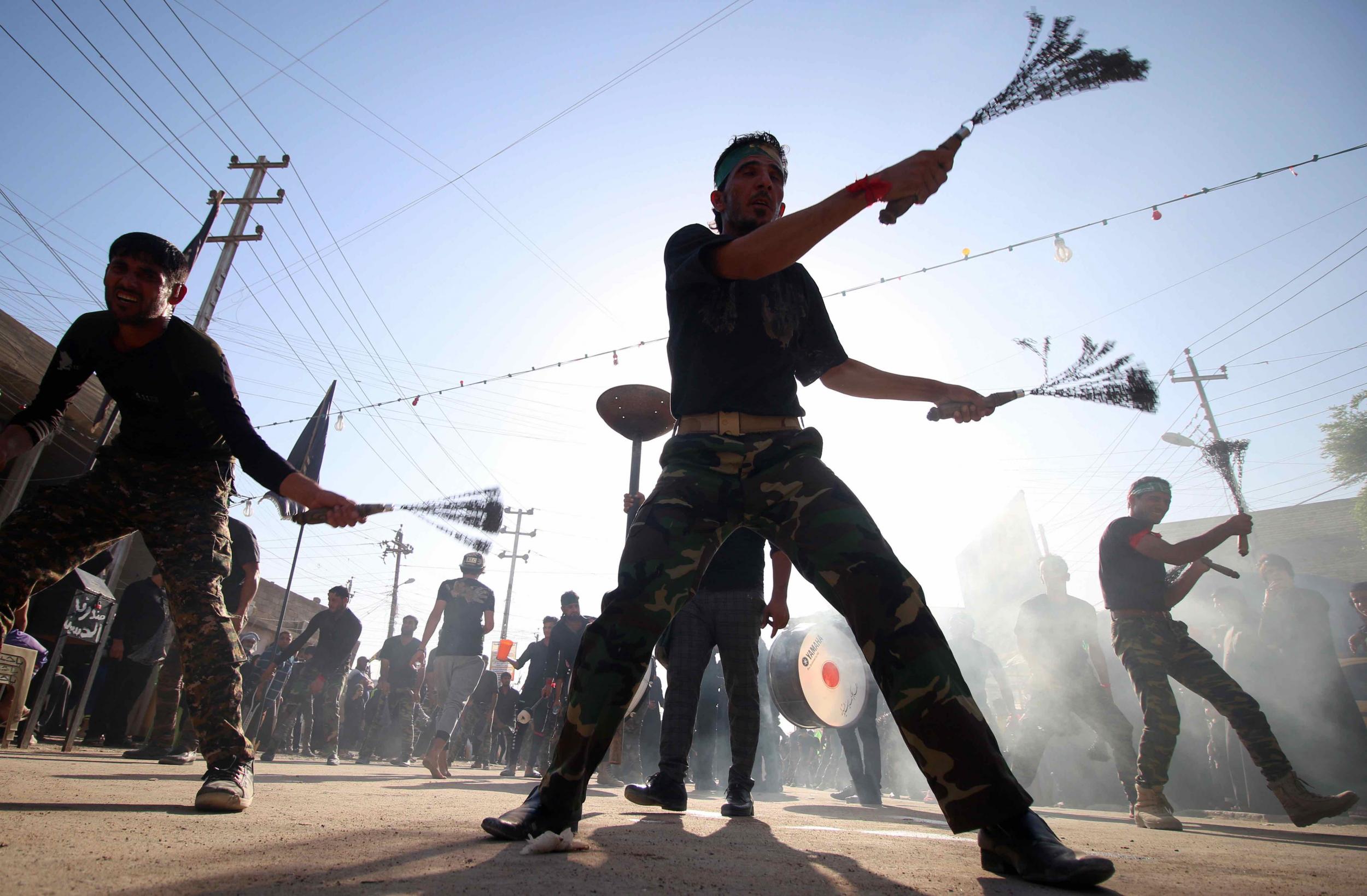
Muslims have begun celebrating the religious festival of Ashura, with some Shia men flagellating themselves to commemorate the martyrdom of Hussein, a grandson of the Prophet Mohammed.
The day falls each year on the 10th of Muharram, the first month of the Islamic lunar calendar. This year, it corresponds with Tuesday 11 October, though the festival begins for observant Muslims at sunset on Monday, and in some countries the day before is also a public holiday.
Ashura is marked by all Muslims, and commemorations can include a voluntary fast.
But the day is a major part of the religious calendar for Shia Muslims, for whom it is a solemn occasion to mourn the death of Hussein in 680 AD at Karbala in modern-day Iraq.
Though the self-flagellation aspect of events marking the day has become best-known, observing Muslims also conduct reenactments of the martyrdom of Hussein and take part in parades and displays of fire-spinning.
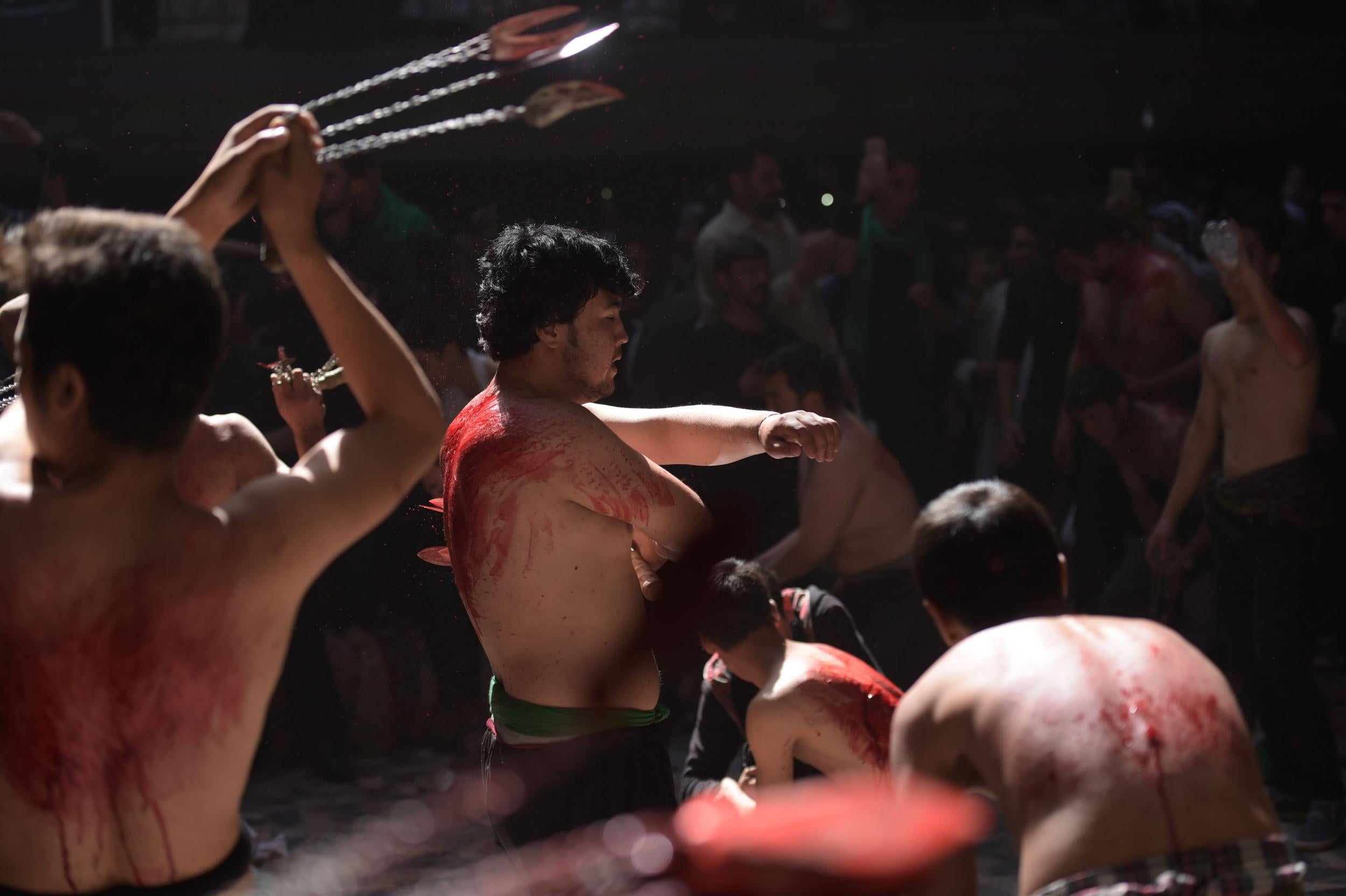
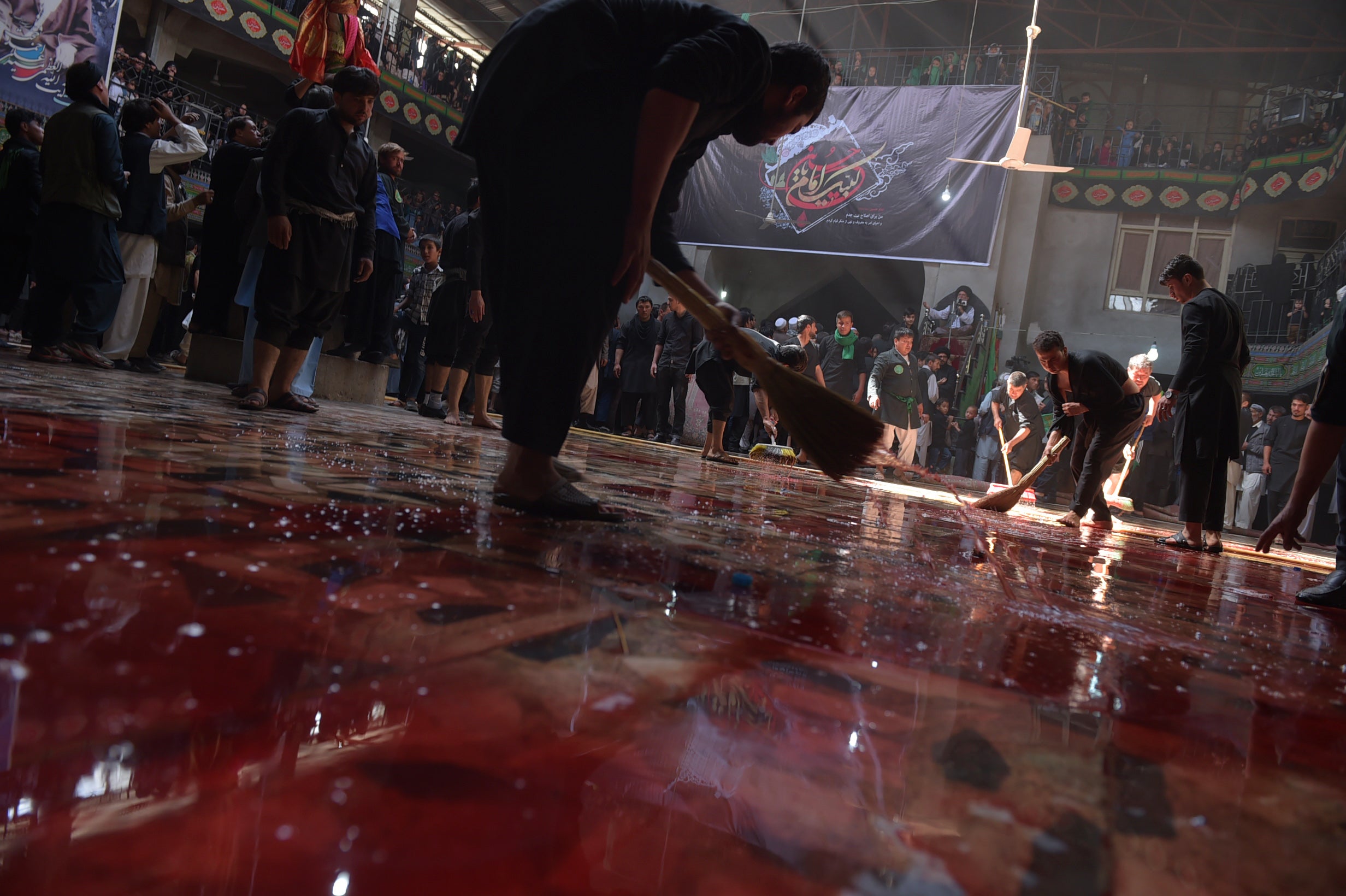
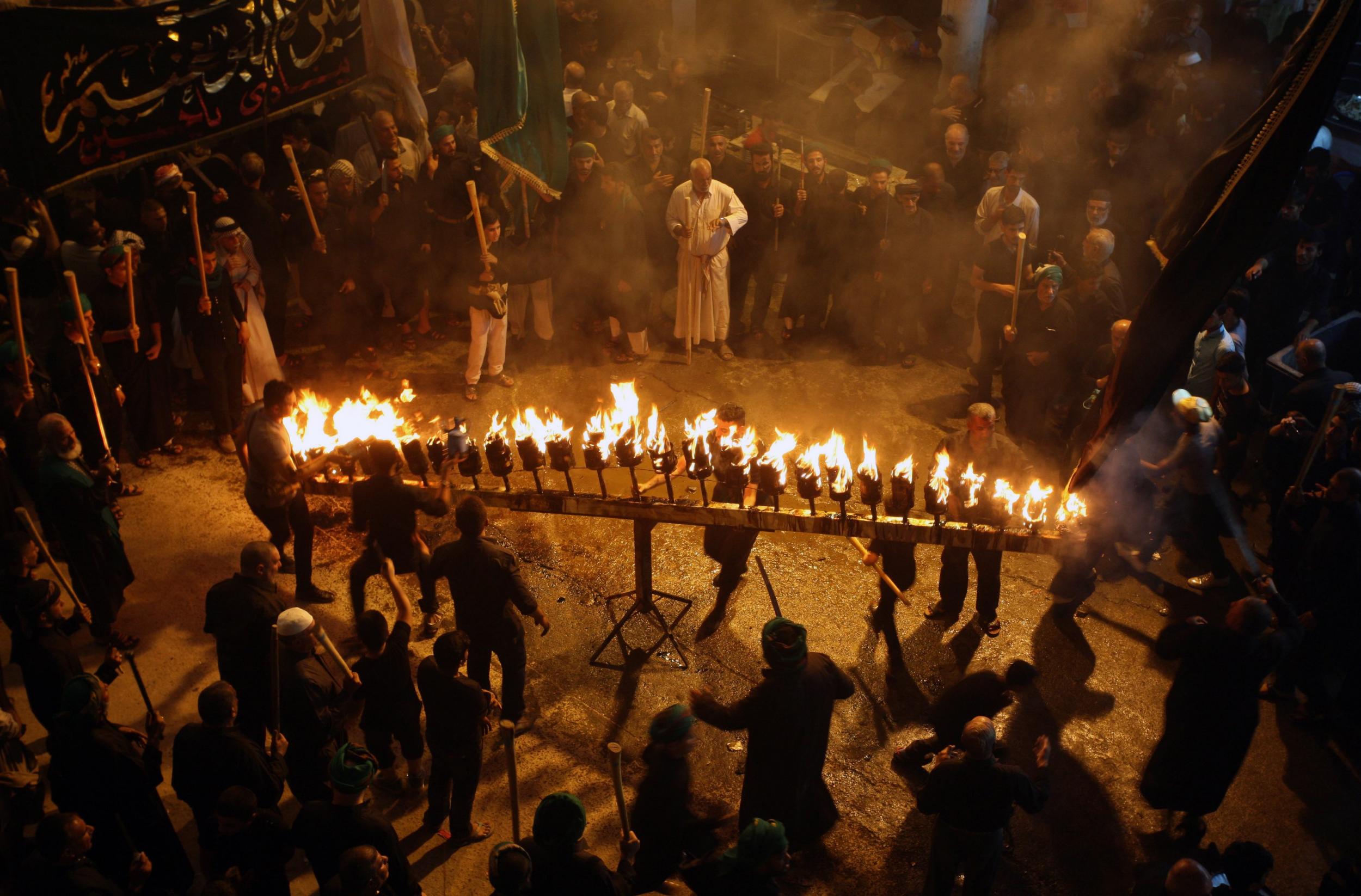
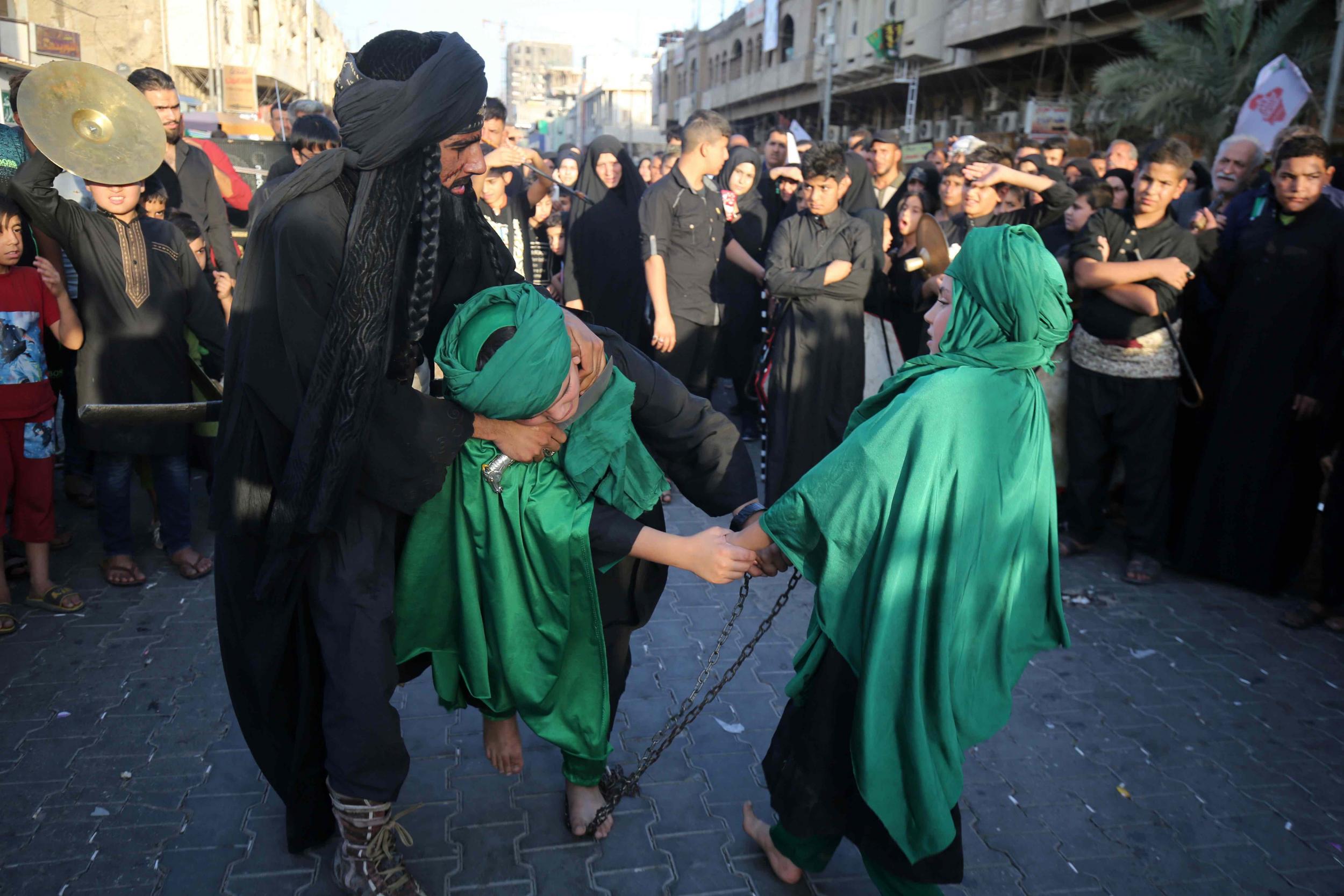

Inevitably, the self-flagellation has been a cause for some controversy. Some religious leaders say the graphic scenes that result tend to paint Shia Muslims in a backward or negative light.
And there has been an effort in recent years to channel the annual blood-letting into a more constructive and progressive practice. Some leaders have suggested marking the day by donating blood.
The killing of Hussein was the event that led to the schism in Islam between Sunni and Shia Muslims, and as such the day also raises heightened security concerns for violence.
On Saturday, an Egyptian national driving a garbage truck loaded with explosives and Islamic State papers rammed into a truck carrying five US soldiers in Kuwait, injuring only himself after his bombs apparently failed to detonate.
The Kuwaiti authorities had previously warned that they would be increasing security measures in the lead up to Ashura. None of the soldiers were injured in the attack, while the alleged assailant is being treated in hospital.
Join our commenting forum
Join thought-provoking conversations, follow other Independent readers and see their replies
Comments